
A Production Production©1998–2026 Dustin Putman

|

 |


2017 was a banner year for cinema, the wealth spread widely between lavish big-budget features, mid-level studio fare from chance-taking auteurs, and independent and art-house pictures of an intimate, character-rich nature. For the first time since 2003, a record-tying seven films warranted a full four-star rating, while my top ten was so packed I couldn't bear to let some of them go (hence, the addition this year of a runners-up list separate from my "honorable mentions" section). 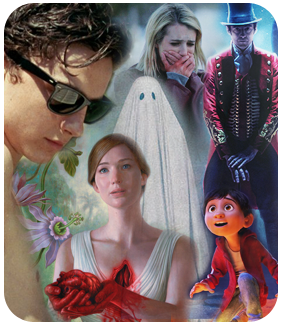 Also for the first time this year, I didn't quite see ten movies deserving of placement on a bottom-ten list, so I've shortened it to five. Either I got majorly lucky and missed most of the genuinely terrible releases of the year, or it's what I suspect: simply an extraordinarily strong twelve months of film.
Out of the 160+ films I saw in 2017 (the complete running list can be found here), I wrote full reviews for just under 70 of them. What began in January as a concerted effort to reel back on the hours dedicated to film analysis each week—a full-time job in and of itself for going on twenty years—became more of a necessity as the months ticked by and my full-time profession separate from my life as a critic required a great deal more of my time and dedication. Still, this did not mean I saw less films—at least not significantly—nor that I enjoyed less of them. Indeed, when counting the number of releases I recommended (rating 2½/4 and higher), I was shocked that I'd liked at least 120, or 75%, of them. Either I'm going soft or higher-quality projects are getting made across the board.
The format of this year-end essay remains mostly the same. I begin with highlighting the best performances I saw over the 12-month period, followed by my choices for the most underrated picture and most overlooked film of the calendar year. Finally, my personal lists for the 10 worst and best films I saw in 2017 will be revealed, along with a runners-up list pinpointing those which were simply too good to merely place in my "honorable mentions." The volume of my review output may have gone down in 2017, but don't let that fool you; this year's cinematic landscape was by and large the most exciting, hopeful and eclectic since I began regularly reviewing in 1998. 
(my pick for the absolute best is indicated in red)
Best Actor
Casey Affleck in A Ghost Story
Claes Bang in The Square
Jamie Bell in Film Stars Don't Die in Liverpool
Timothée Chalamet in Call Me by Your Name
Bryan Cranston in Wakefield
Matt Damon in Downsizing
Daniel Day-Lewis in Phantom Thread
Dane DeHaan in A Cure for Wellness
Ansel Elgort in Baby Driver
Sam Elliott in The Hero
Ethan Embry in The Devil's Candy
Chris Evans in Gifted
Colin Farrell in The Killing of a Sacred Deer
Michael Fassbender in The Snowman
Dave Franco in The Disaster Artist
James Franco in The Disaster Artist
Anthony Gonzalez in Coco
Ryan Gosling in Blade Runner 2049
Jake Gyllenhaal in Stronger
Tom Hanks in The Post
Woody Harrelson in Wilson
Charlie Hunnam in The Lost City of Z
Hugh Jackman in The Greatest Showman
Hugh Jackman in Logan
Daniel Kaluuya in Get Out
James McAvoy in Split
Levi Miller in Better Watch Out
Kumail Nanjiani in The Big Sick
Gary Oldman in Darkest Hour
Robert Pattinson in Good Time
Jeremy Renner in Wind River
Andy Serkis in War for the Planet of the Apes
Tye Sheridan in Detour
Harry Dean Stanton in Lucky
Dan Stevens in Beauty and the Beast
Miles Teller in Thank You for Your Service
Jacob Tremblay in Wonder
Best Actress
Annette Bening in Film Stars Don't Die in Liverpool
Jessica Chastain in Molly's Game
Jessica Chastain in The Zookeeper's Wife
Olivia DeJonge in Better Watch Out
Zoey Deutch in Before I Fall
Kirsten Dunst in Woodshock
Harriet Dyer in Killing Ground
Gal Gadot in Wonder Woman
Carla Gugino in Gerald's Game
Anne Hathaway in Colossal
Sally Hawkins in The Shape of Water
Salma Hayek in Beatriz at Dinner
Anne Heche in Catfight
Katherine Heigl in Unforgettable
Dafne Keen in Logan
Anna Kendrick in Table 19
Nicole Kidman in The Killing of a Sacred Deer
Diane Kruger in In the Fade
Jennifer Lawrence in mother!
Melanie Lynskey in I don't feel at home in this world anymore.
Rooney Mara in A Ghost Story
Rooney Mara in Song to Song
Frances McDormand in Three Billboards outside Ebbing, Missouri
Maika Monroe in The Tribes of Palos Verde
Sennia Nanua in The Girl with All the Gifts
Sandra Oh in Catfight
Aubrey Plaza in Ingrid Goes West
Brooklynn Prince in The Florida Project
Haley Lu Richardson in Columbus
Margot Robbie in I, Tonya
Saoirse Ronan in Lady Bird
Jessica Rothe in Happy Death Day
Kristen Stewart in Personal Shopper
Emma Stone in Battle of the Sexes
Meryl Streep in The Post
Anya Taylor-Joy in Split
Charlize Theron in Atomic Blonde
Emma Watson in Beauty and the Beast
Naomi Watts in The Book of Henry
Michelle Williams in All the Money in the World
Kate Winslet in Wonder Wheel
Best Supporting Actor
Best Supporting Actress

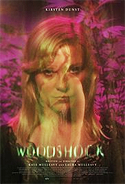 "Woodshock," "Woodshock," written and directed by Kate Mulleavy and Laura Mulleavy, should have taken upscale cinemagoers by storm when it opened theatrically in September. It was the brainchild of two renowned fashion designer sisters making their arty, visually sumptuous feature debuts. It starred Kirsten Dunst in a shattering performance as a young woman overwhelmed by grief following the death of her terminally ill mother. It was released by A24, a savvy, indie-minded production company whose releases are almost unequivocally of high quality. Its promotional art and trailers were eye-catching in the best way, accurately exhibiting the film's uniquely haunting aesthetic and style. Instead, the picture died quickly at the box office, earning a grand total of $42,603 while never playing on more than 39 screens at one time. Critical notices were not favorable, either (its Rotten Tomatoes score currently sits at a discouraging 18%). During award season, A24 chose to not include "Woodshock" in its "For Your Consideration" screener bundle sent out to critics, despite Dunst's searing performance standing as one of the very best of the year. The film is not only worth a look, it is a dreamily provocative stunner, a forlorn tone poem set amongst the California Redwoods with a fresh artistic eye unlike any other. When the works of so many filmmakers can be compared to past auteurs, the Mulleavy duo have crafted a singular work of understated, tormenting beauty. A hypnotic depiction of one woman's battle with guilt and depression, "Woodshock" is ethereal and harrowing in equal measure, an unusual journey unforgettably at one with itself.

 "The Snowman," "The Snowman," directed by Tomas Alfredson (2008's acclaimed Swedish vampire film "Let the Right One In"), was so critically savaged at the time of its October release (current Rotten Tomatoes rating: a frightful 8%) it was almost as if everyone had seen an entirely different movie than the one which flickered to sumptuous life before this writer's eyes. A sprawlingly designed, thematically dense serial-killer thriller based on the bestselling novel by Jo Nesbø, "The Snowman" defies most mainstream genre trappings in often thrillingly unpredictable ways. The story unfolds at its own intoxicating pace and tempo, unconcerned with cut-and-dry plotting as it drifts off on enigmatic tangents which ultimately and sometimes ingeniously collide. The ensemble is a great one, too; Michael Fassbender, Rebecca Ferguson, Charlotte Gainsbourg, J.K. Simmons, Toby Jones, James D'Arcy and Chloë Sevigny all make a lingering impact even when a few of them only get a couple scenes apiece. Misunderstood and written off upon initial release but hopefully headed toward an eventual, richly deserved reappraisal, this is a complex, sumptuously frosty psychological drama about the inextricable bond between parents and children, and the potential lingering emotional traumas threatening both sides when the unwritten promises of said relationships fail to be met. This thematic thread is so enveloping and so pivotal to the very foundation of virtually every moment it fast becomes the film's heartbeat. The picture is riveting and cohesive even in its unanswered questions and spatial wanderings, all the better to bring appreciable scope and a darkly fanciful folklorist aura to its bone-chilling Nordic landscape. Even in its imperfections, "The Snowman" is unusual, fascinating, and warranting of closer consideration, a layered thriller with visual beauty to spare and forlorn wisdom into both the mysteries and universalities of the human condition.

 | Justice League
It is almost shocking how bad "Justice League" is. In a clear attempt to change course following the divisiveness of 2016's brooding, existentially thorny "Batman v Superman: Dawn of Justice" (a film which revealed ever more layers in its superior "Ultimate Cut" version), all semblances of intrigue, individuality, and storytelling texture have been gutted from the frequently jokey mess which has found its way to the big screen. The film, aiming to cinematically do for DC Comics what "The Avengers" did for Marvel (while, it should be said, unconvincingly mimicking the Marvel formula), lacks even an ounce of that latter superhero squad's easy, likable camaraderie. Worse still, if "Batman v Superman" thoughtfully grappled with real-world subject matter concerning guilt, vengeance, and even terrorism, "Justice League" has absolutely nothing on its mind, each new tedious minute only placing a magnifying glass over its soulless emptiness. Director Zack Snyder's personal stamp on the material has been gutted, replaced by an undeniable "made-by-committee" stench which has killed any number of mega-budgeted blockbusters of yore. "Justice League" isn't the least bit rousing, as it ought to be. Instead, it's just kind of desperate and sad. |
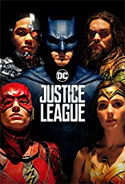 |
 | Leatherface
For fans of the 43-year, 8-film-and-counting "The Texas Chain Saw Massacre" franchise, everything that could go wrong seemingly has with the execrable "Leatherface." Exploring the genesis of Jed Sawyer's homicidal madness and his path toward becoming the corpse-skinned, chainsaw-wielding Leatherface is an intriguing idea by itself—even if this subject was already covered, and done better, in 2006's "The Texas Chainsaw Massacre: The Beginning"—yet the conceptual angle screenwriter Seth M. Sherwood has taken is misguided in the extreme, undermining itself with cheap storytelling gimmicks and not once feeling as if it is exists within the same universe as the original Tobe Hooper classic. By setting up the story as a mystery of sorts and turning the identity of the future madman into a guessing game between three characters, the film reveals itself to be thoroughly disinterested in the title figure's psychology. The longer this charade plays out, the more irritating it becomes. As mean-spirited as the film is, it's never, not once, actually scary. Directors Alexandre Bustillo and Julien Maury have impressed in the past—their early French imports "Inside" and "Livid" are disturbing yet classy triumphs—but none of that inspiration is on hand in "Leatherface." In its place is unremitting viscera and sadism without tension, insight, or an ultimate point. |
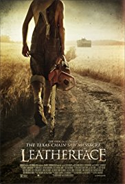 |
 | Resident Evil: The Final Chapter
One would think a five-year gap between installments and a title proclaiming itself the last in the long-running, six-part zombie action franchise would inspire writer-director Paul W.S. Anderson to step outside the box, strive to surpass expectations, and make something a little more special than what has gone before. Alas, that was asking too much. "Resident Evil: The Final Chapter" is more of the same to a numbing degree, a ceaselessly dreary, virtually interchangeable installment that doesn't even respect its tireless heroine enough to give her the cathartic send-off she deserves. Throughout the last fifteen years, Milla Jovovich has turned her devotion to the "Resident Evil" property into the cornerstone of her career. It is what she is best known for, and she has amply represented women as a fierce, capable action lead. For all of the good her protagonist has symbolized, Jovovich has consistently deserved better as an actor. Alice is strong, she's tough, she's loyal and resolutely ethical, and she doesn't need saving from the opposite sex. These films have never, however, shown genuine interest in her or her plight; she is a pawn, and nothing but. If this series has closely followed Alice's journey, the junky, forgettable "Resident Evil: The Final Chapter" cannot be bothered with her destination, ending in a way that gives her no respite, relief, or hope for a happy future. After a decade and a half of slaying bad guys and evading death, she warranted at least that much. |
 |
 | Chupacabra Territory
Eighteen years after "The Blair Witch Project" broke new ground, terrified audiences, and arguably created an entire subgenre with its found-footage storytelling conceit, "Chupacabra Territory" is arguably one of the worst and most obnoxious of its imitators. Writer-director Matt McWilliams is shameless in how derivative he makes his every narrative beat. A group heading into the woods to investigate a local legend? Check. A harbinger who warns them of the lurking danger? Check. An intrepid, know-it-all female leader who might as well have "Heather Donahue wannabe" stamped on her forehead? Check. Shaky chases through darkened underbrush? Check. Tearful last rites to the camera as it becomes likely they won't be making it out alive? Check, save for the crying part; these actors simply aren't very convincing and specialize in tears of the crocodile variety. Fictional cinéma vérité requires an air of realism above all else. Without that, the crucial spell dies on the vine. "Chupacabra Territory" fails entirely on this level, and plenty of others. Occasional camera angles are illogical for found-footage material. Performances try too hard to emulate what the actors have seen from past films of this sort. Characters are unsympathetic and irritating, doing the wrong things at all times. The plot, as straightforward as it is, still manages to lose its way in a mucky possession subplot. There is no tension built and zero scares achieved because every single beat is so exceedingly familiar and uninspired. Those who dare sit through this film's entirety right before bedtime can be assured of one thing: a deep, restful slumber. |
 |
 | Transformers: The Last Knight
For over a decade, the "Transformers" franchise has made its money on being big, dumb and loud. Even by those standards, "Transformers: The Last Knight" is irredeemable garbage that gives summertime blockbusters a bad name, an insufferable slog through terrible decisions, dreadful execution, and the flagrant pilfering of more money than most people will ever see in a lifetime. A blindfolded person with a gun pointed at his or her head couldn't pen a worse screenplay. A director who has just woken from a thirty-year coma and been immediately wheeled to set couldn't make a more inept feature. In an instant, Michael Bay has destroyed whatever minor progress he had begun to make with his reasonably diverting previous two entries, 2011's "Transformers: Dark of the Moon" and 2014's "Transformers: Age of Extinction," the lessons he learned about how to helm action and create a modicum of tension incinerated in the flames of his latest pyrotechnic stunt. Here is a film of brazen, braincell-sucking inanity, bereft of even a scintilla of imagination and patently offensive in its contempt for audiences. Images move in front of one's eyes, but there isn't anything there to care about, to excite, to challenge, or to entertain. The only emotion the film inspires is disdain. An insulting $260-million pâté of cinematic excrement, "Transformers: The Last Knight" is an endurance-testing assault on the art of cinema, one physical altercation away from becoming criminal. |
 |

Runners-Up
This was an outstanding year for film, practically overflowing with greatness. The following fifteen films (listed in alphabetical order) didn't quite make my final top-ten list. In a lesser year, they most certainly could have:
Beauty and the Beast – Gary Trousdale and Kirk Wise's 1991 hand-drawn Disney classic receives a marvelous live-action remake with romantic musical adventure "Beauty and the Beast." Exquisitely directed by Bill Condon and sensitively written by Stephen Chbosky and Evan Spiliotopoulos, this expansive adaptation feels like a cinematic event as it plays out, an extravaganza of goosebump-inducing melody, heart and daring.
The Beguiled – Sofia Coppola's sumptuous, female-centered, Civil War-set adaptation of Thomas Cullinan's 1966 novel, "The Beguiled" is a sumptuous affair of hypnotic southern gothic flair. A masterful study in mood and longing, the picture's aesthetic spell is matched by its enthrallingly low-key, exceedingly sordid tale of mordant manners, repressed urges, and disintegrating inhibitions.
Catfight – For anyone who has been feeling constantly upset, distressed and in disbelief over the current political climate, "Catfight" just might be the most cathartic remedy that has yet been made. The understandably indignant brainchild of writer-director Onur Tukel, the film uses the drop-kicking, fist-flying animosity between two former college frenemies (played by a flat-out brilliant Sandra Oh and Anna Heche) as blistering metaphor for all of the discord continuing to occur across the globe. Again and again, "Catfight" verges on astonishing in its go-for-broke, no-fucks-given audacity.
A Cure for Wellness – A fledgling young stockbroker (Dane DeHaan) travels to a fancy spa in the Swiss Alps in hopes of locating the company CEO and finds it exceedingly difficult to escape in Gore Verbinski's deviously ravishing "A Cure for Wellness." The cinematic equivalent of a disturbingly vivid fever dream, the film's every frame is so indelibly phantasmal one can practically ignore the plot if he or she chooses and simply drink in the sumptuous images. Bojan Bazelli's cinematography is high art in motion.
Dark Night – A lonesome tone poem with a mournfully inevitable final blow, "Dark Night" is writer-director Tim Sutton's contemplative, unanswerable reaction to the escalating mass shootings and gun violence dotting the American landscape. Its lackadaisical, cinéma vérité style may prove a notch too esoteric for some, but for others it is a wondrously sad, tensely suggestive art piece.
Ingrid Goes West – The attention-catching, deliciously uncomfortable feature debut of writer-director Matt Spicer, "Ingrid Goes West" is a perceptive film about the prickly nature of perception and the human need to feel accepted. Aubrey Plaza gives one of the year's most emotionally complex performances as a lonely, mentally troubled young woman who travels cross-country to be closer to her favorite social media celeb (Elizabeth Olsen). "Ingrid Goes West" is beautiful and messy. Just like real life. Just as it should be.
In the Fade – As a woman overcome with anger and despair when her beloved husband and young son are killed in a targeted terrorist bombing, Diane Kruger is a revelation in the riveting, unyielding "In the Fade." Director Fatih Akin refuses to telegraph exactly where he is taking this particular story, and where he ends up is challenging, unexpected, and not easy to shake.
It: Chapter One – In the summer of 1989, a group of middle-school friends ban together to fight a demonic, clownish presence sweeping over their Maine town. Simply put, "It: Chapter One" is the best big-screen Stephen King adaptation since at least 1995's "Dolores Claiborne," an assured, personal, deeply touching work that transcends its horror roots while playing beautifully on multiple levels. To predict that, in time, director Andy Muschietti's lavishly ghastly, crucially heartfelt thriller may well go down as a classic of the genre strikes as neither premature nor hyperbolic.
Lady Bird – The lovely directorial debut of Greta Gerwig, "Lady Bird" is a coming-of-age story filled with all the intimacy, accuracy, happiness, heartache and finer details of a filmmaker passionate about capturing that final gasp of one's teenage adolescence. Saoirse Ronan and Laurie Metcalf lead a perfect ensemble as a daughter and mother struggling to see eye to eye and not always succeeding.
My Life as a Zucchini – A young boy sent to a foster home following the sudden death of his mother struggles with his new normal while carving out a new place where he feels he belongs. The Swiss animated film "My Life as a Zucchini" is, in a word, wonderful. In a few more words: beautiful, honest, uncompromising, sweet, touching, hopeful.
Personal Shopper – A genre-shifting vision of heartbreaking empathy and haunting ambiguity, Olivier Assayas' "Personal Shopper" contemplates the inexplicable nature of life and death as seen through the eyes of an American woman (Kristen Stewart) lingering in Paris as she tries to make contact with her recently deceased twin brother. And then she begins receiving mysterious, increasingly threatening text messages. A one-of-a-kind drama of eerie, poignant consequence.
Song to Song – Against a backdrop of the burgeoning, bustling music scene in Austin, Texas, the lives of three individuals (Rooney Mara, Ryan Gosling, Michael Fassbender) and those whom they influence thread like a guitar-stringed tapestry. Loaded frame to frame with a stirring grace and unforced profundity reminding of writer-director Terrence Malick's best work, the confidently sprawling and startlingly clear-eyed "Song to Song" is of a whole with itself, always lyrical and often breathtaking to watch take shape.
Three Billboards outside Ebbing, Missouri – Writer-director Martin McDonagh's "Three Billboards outside Ebbing, Missouri" is profane, moving, and darkly funny, highlighted by two of the year's greatest performances: Frances McDormand, raw and fearless as a grieving mother desperate to put a fire under the local police's investigation into her teenage daughter's murder, and Sam Rockwell, stunning and touchingly multilayered as a cop with a short fuse and an unanticipated conscience.
Wonder – A beautiful, inspiring adaptation of R.J. Palacio's much-loved YA novel, "Wonder" earns its every emotion without once reaching for the violins. Traversing the rocky fifth-grade year of a boy (Jacob Tremblay) with facial differences entering public school for the first time, the narrative uses shifting points-of-view to lend insight and understanding to the lives of its characters. Director Stephen Chbosky brings a welcome grace and humanity to a story that, in lesser hands, could have easily proven manipulative and insincere.
Woodshock – Theresa (Kirsten Dunst) is lost, her pit of despair so deep and enveloping it's as if she has returned to that summer during her childhood when she briefly went missing among the California Redwoods. "When they found me," she says in opening voiceover, "I almost didn't want to come back." So begins the portentously alluring "Woodshock," 2017's most grievously overlooked and misunderstood film. The aura of sadness writer-directors Kate and Laura Mulleavy bring to their images is as indelible as it is lonesome, the pangs and mortality of real life overshadowing Theresa's idyllic memories of a woodland fairy tale existing right outside her door.
The following is my list of the ten best films of 2017:
 | I, Tonya
Laceratingly funny and unexpectedly empathetic, "I, Tonya" tells of the fast rise and infamous fall of shamed figure skater Tonya Harding, making sure all the while she comes off looking like more than a punchline. This is key to the substantial success of director Craig Gillespie's and writer Steven Rogers' voraciously entertaining, blazingly cinematic black comedy. In the wrong hands, this subject matter could have easily resembled a sudsy Lifetime movie. It never, not once, does. Led by Margot Robbie's tour de force portrayal of Tonya and Allison Janney unforgettable supporting turn as her tornado of a mother LaVona, "I, Tonya" crackles and pops throughout its two-hour running time, at once a complex, equal-opportunity biopic, an irreverent satire, and a riveting crime drama. Doing for ice skating what 1995's masterful Gus Van Sant-directed, Nicole Kidman-starring "To Die For" did for news journalism, the film weaves a wild true story of ruthless ambition and criminality. With more than two decades gone by, now was the time to freshly tackle this fascinating human subject and the whirlwind of incendiary notoriety Tonya Harding found stamped upon her name. Some of it was probably warranted, but certainly not all, and not permanently. What director Gillespie ultimately gets at is that Tonya was a flawed human being, not a devious villain, and he does this with a tone at once strikingly jocular and deliciously, movingly operatic in its pinball of high drama and lost opportunities. |
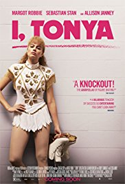 |
 | Dunkirk
A sustained ambience of dread invades every moment of "Dunkirk," writer-director Christopher Nolan's remarkably mounted, ceaselessly intense World War II epic. From May 26 to June 4, 1940, an evacuation attempt of 400,000 Allied soldiers took place on the shores of Dunkirk, France, as German forces closed in from all sides. While this operation ultimately went down as a defeat for the British and French armies, more than 338,000 men were transported to safety over a grueling eight-day period. In war, how can survival be counted as anything other than a victory? It is this latter point which Nolan vividly makes again and again, not via words but through frequently astonishing visual storytelling which places the viewer squarely in the shoes of its brave, frightened, imperiled human subjects. An immersive experience nearly impossible to sit back and watch with detachment, "Dunkirk" economically depicts this harrowing event from three vantage points—land, sea, and air—playing out simultaneously across three timeframes (one week, one day, and one hour). Its structure is ingenious, cohesively capturing every side of this struggle without compromising the reality of what, and how, it occurred. Thorough and comprehensive despite playing out over a tight 107 minutes, "Dunkirk" gets to the darkened, hellish heart of war. |
 |
 | Baby Driver
"Baby Driver" is a high-wire, hyper-cool, adrenaline-fueled fusion of music, action and ecstasy. To be sure, there have been countless past heist pictures and plenty of movies driven by their soundtracks, but there has never been anything quite like what writer-director Edgar Wright has accomplished here. Entirely original and intoxicatingly fluid, the film begins with a great lead character—one worthy of becoming iconic in the modern cinematic lexicon—and then gives him a talent behind the wheel and an array of iPods and sunglasses among his accessorized arsenal. Baby (Ansel Elgort), you see, was in a car accident as a child and suffers from tinnitus—"a hum in the drum," as it is succinctly described. He began using music to drown it out, and now an endless playlist accompanies his life, as natural as eating and sleeping. "Baby Driver" happily subverts expectations at practically every turn. Ultra-violent yet romantically swoon-worthy—Lily James is irresistible as diner waitress Debora, whom Baby falls for—the film revs to a sustained crescendo of propulsive car chases, mesmerizing choreography, and irresistible song cuts. Just as everything is at stake for Baby, so is the film's balancing act of performance, editing and sound design. One false move in regard to these three critical elements and all could collapse. Nothing ever does. With "Baby Driver," Edgar Wright has made something truly dazzling, a unique rhythm of storytelling that feels entirely his own. |
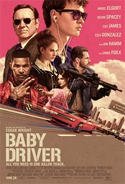 |
 | I don't feel at home in this world anymore.
Like a shot through the heart, the mind, and one's increasingly frayed nerves, "I don't feel at home in this world anymore." is the phenomenally assured directorial debut of actor Macon Blair. Mesmerizingly criss-crossing any number of genres, the film is at once a sharply funny observational comedy, a poignantly felt slice-of-life, a craftily absorbing investigative procedural, and an unflinchingly tense neo-noir thriller. Most of all, it is stirringly original, a showcase for the underrated light and brilliance of Melanie Lynskey in one of the best roles of her career. Lynskey is front and center throughout as Ruth, a single, honest-hearted nursing assistant terminally let down by the cruelty, disrespect and entitlement of mankind she sees around her. When her home is burglarized and her computer and late grandmother's cherished silver stolen, her attempt to track down the items leads her on a surprising, increasingly hair-raising small-town odyssey, almost poetic in its collision course of compassion and violence. "I don't feel at home in this world anymore." is every bit as miraculous as Lynskey's tremendous turn, a film of organic, rhapsodic, fully realized confidence. Never losing sight of Ruth's personal journey even as the pot-boiling suspense and jolting brutality of its third act reminds of the best of Joel and Ethan Coen, the picture leads to a finale, and then a conclusion, both weird and wonderful, unexpected and pure. |
 |
 | Coco
"Coco" is an insta-classic, a dazzling, captivatingly written adventure resonating with profundity about life and death, memory and legacy. For computer animation giant Pixar, this is one of their highest achievements, a film in which seemingly every component hits the bull's-eye. Director Lee Unkrich brings passion and urgency to his Day-of-the-Dead-set tale of a 12-year-old aspiring musician (voiced by Anthony Gonzalez) born into a family where music is frowned upon. The purpose of Mexico's Dia de Muertos—to pray for, remember, and pay tribute to loved ones who've passed—is brought to vivid, affecting, teachable life, a sacred celebration which connects its people and the bonds of their respective lineages and pasts. Likewise, the film's touchy themes about the process of living and dying are sensitively handled in a way that should intimately speak to all ages even as it ultimately will mean something a little different for each viewer based on his or her own familial history and experiences. If the best in cinema has the power to touch audiences on multiple levels, to offer eye-opening visions and bring a sense of newfound wonder to their souls, then this rapturous gem meets each of these prerequisites. Graceful, bittersweet and altogether astonishing, "Coco" understands with utmost clarity what it means to be human.
|
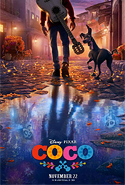 |
 | The Blackcoat's Daughter
The horror genre can work on many different levels and have extraordinarily diverse aims, but somehow, more often than not, its output gets lumped in as gross-out, lowest-common-denominator fodder by the misinformed and narrow-minded. Darkness and terror and, yes, sometimes blood and violence can have deeper purposes, the mere conduit in which to convey nothing less than the human condition—our fears, our struggles, our longings, and our hopes for a new dawn. "The Blackcoat's Daughter" gets it right and then some. This is an unwaveringly profound debut feature from writer-director Osgood Perkins (son of the late, great Anthony Perkins), a motion picture so intensely layered, so fastidiously detailed, so remarkably constructed, so suggestively atmospheric, and so emotionally resonant it earns its place as a modern work of art. In tracing the fateful paths of three young women—two students (Kiernan Shipka and Lucy Boynton) left behind during winter break at a snowy New England prep academy, and a mysterious third (Emma Roberts) traveling late into the night to an as-yet-unidentified destination—an unsettling aura of doom pervades the proceedings, the film's insidious yet empathetic vision crystallizing the longer one gazes. Here is a penetrating tale about loss and bereavement, about the desperate search for faith and the lengths people may go to not feel alone. It is also, ultimately, about shame and regret, about wishing to take back that which cannot be changed. All of this and more can be seen in the faces of its well-drawn characters, punctuated by its blisteringly cold rural locales and cinematographer Julie Kirkwood's indelibly forlorn lensing. "The Blackcoat's Daughter" is a cloven-hooved tragedy of grim, classy, altogether shattering consequence. |
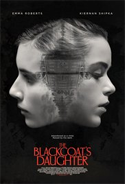 |
 | mother!
A maddening, nerve-shredding masterstroke of auteur ballsiness, "mother!" is writer-director Darren Aronofsky's jolting answer to cinematically capturing what it is like to be trapped in a nightmare. A literal nightmare, that is, born from the infernal bowels of one's most distressing subconscious reaches. From beginning to end, he does not let up, sweeping along viewers and his increasingly frustrated, baffled, horrified protagonist (a never-better Jennifer Lawrence) as the peace of her rural farmhouse is gradually invaded by a cavalcade of strangers. Inspiring awe and, at times, virtual disbelief in the taboo places Aronofsky dares to take his heightened, sky's-the-limit narrative, mother!" demands discussion, but ideally not before each viewer has taken the time to mentally process what has been experienced. In weeks, years, and decades to come, countless think pieces will be written on its overflowing bounty of challenging thematic threads and subjective takeaways—about the struggles to retain control and find purpose in a temporary life, about the sacrifices people make for love, about the dehumanizing price of fame and the objectification of celebrity when not even one's own privacy is sacred. It is also, yes, about motherhood, both the love and protectiveness that comes with it and the horror that can so easily seep into its foundation. When so many films inspire an indifferent response or are happy to work only on the level of disposable entertainment, it is the ones which dare to forge their own uniquely ambitious paths that will live on as something altogether greater and more fascinating. "mother!" is magnificent, a surrealistic maelstrom of unthinkable terror and staggering cathartic power. |
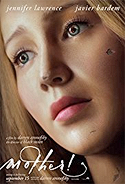 |
 | The Greatest Showman
"The Greatest Showman" is as joyous and magical as any film released in 2017, a wholly original musical arriving so fully formed, so vibrantly accomplished, and so clear of vision it feels as if it's been a beloved classic for 50 years. In loosely adapting for the big screen the life of famed showman P. T. Barnum, director Michael Gracey (making a dazzling directorial debut) and screenwriters Jenny Bicks and Bill Condon have crafted a pair of quite literally soaring love stories set against the backdrop of the museum-turned-sideshow business Barnum created. Initially focused on little more than making money for himself and his family—supportive wife Charity (Michelle Williams) and their young daughters—P. T. Barnum (Hugh Jackman) ultimately gave voices to his hired "human curiosities," the disenfranchised souls living in the margins of a heretofore unaccepting 19th-century society. A hopeful tale of triumph over adversity and the intimate bonds which make life worth everything, "The Greatest Showman" is a special motion picture that, to paraphrase one of its sublime songs, "comes alive" from frame one and enchants for every second after. Emboldened by a sparkling soundtrack from "La La Land" songwriter-composers Benj Pasek & Justin Paul, a miraculous score from John Debney and Joseph Trapanese, and lustrous lensing from cinematographer Seamus McGarvey, this is glorious cinematic spectacle done exactly right. A quixotic marriage of image and sound, the picture taps, claps, belts and swings its way into a place of unfettered nirvana. Its guiding force is the emotion it inspires, and inspire it does; less than ten minutes in, its breathtaking second musical number, "A Million Dreams," had this writer valiantly struggling to see through the tears. A new entry in the pantheon of movie musical favorites has been born. |
 |
 | A Ghost Story
If death is one of the few certainties in life, what happens after a living being's heart stops beating is as inscrutable a mystery as any in the universe. There's no way of knowing what, if anything, is waiting on the other side, but writer-director David Lowery has imagined a provocative possibility as devastating as it is astonishing. Spare in its storytelling but incalculably profound in its suggestion, "A Ghost Story" may be as lonely as cinema gets, a sublime existential hymn of melancholic transcendence. The lead character is C (Casey Affleck), a Texas-based musician killed in a freak car accident while backing out of his driveway. While bereaved wife M (Rooney Mara) struggles to pick up the pieces of their shattered life together, a ghostly C silently watches, caught between this earthly plane and another, his spirit trapped under a flowing white bedsheet. "A Ghost Story" is staggering in its ambition, its wisdom, and its unfettered humanity, a hypnotic eulogy to legacy and the ineludible epochal shifts which leave our mortal bodies behind. As the narrative develops in thoroughly unanticipated ways and composer Daniel Hart's ethereal score strikingly complements its voyage, Lowery continues to break convention and the heretofore laws of time and perception. Cyclical and nonlinear, an emblem to the conundrum of this world and the metaphysical next, the film manages the remarkable feat of capturing the visceral beauty of singular moments and the breathtaking enormity of everything at once. "A Ghost Story" is a cosmically connected masterpiece, deceptively simple in design yet awe-inspiring in its philosophical vastness. |
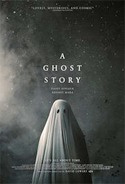 |
 | Call Me by Your Name
First love has rarely been captured on film with the rapturously aching accuracy found in "Call Me by Your Name." Luminous, breathtaking, and so extraordinarily intimate one can scarcely believe something so miraculous has been captured in front of a camera by actors, the picture is close to a miracle. Director Luca Guadagnino, who is incapable of crafting an aesthetically ugly image, and writer James Ivory, adapting from André Aciman's 2007 novel, have fashioned a coming-of-age tale of lived-in depth and astonishing sensuality. The premise is straightforward—In 1983 Northern Italy, 17-year-old Elio (Timothée Chalamet) and visiting 24-year-old doctorate student Oliver (Armie Hammer) befriend each other, then fall madly in love, just as their summer together begins to wind down—but there is nothing simple about its layered characters and their textured relationships. The chemistry between Timothée Chalamet and Armie Hammer is white-hot to the point of hitting nuclear levels. To watch "Call Me by Your Name" is to get lost for 132 minutes in the lives of characters so true and sympathetic they cease to feel like fictional creations. By the end, they've become a part of us. Guadagnino and Ivory fully immerse the viewer in a world at once spellbindingly picturesque and strikingly identifiable, every emotion they conjure and every sun-dappled 35mm image captured by cinematographer Sayombhu Mukdeeprom a gift from the cinema gods. And what emotions! Here is a film without a single contrived or falsely manufactured moment, the leisurely rhythms of its pacing allowing one to drink in the ebbs and flows of life, the joys and pains of growing up, and the initial uncertainties and ultimate catharses of finding one's own identity. Days after seeing the film, its sheer memory is enough to elicit a physical reaction, and how often do movies have that sort of lingering impact? "Call Me by Your Name" is a motion picture to cherish. Soulful and profound, it holds the power to haunt and devastate for days. |
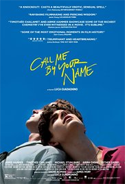 |
|
© 2017 by Dustin Putman
 |
|
|
|